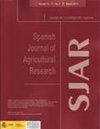Determinants of organic wine production: An application in the DOC Rioja wine industry
IF 0.8
4区 农林科学
Q3 AGRICULTURE, MULTIDISCIPLINARY
引用次数: 1
Abstract
Aim of study: To analyse the role that valuable resources and agglomeration would play in the decision to produce organic wines. Area of study: The Controlled Designation of Origin (DOC) Rioja wine industry in Spain, the leading qualified denomination of origin of Spain. Material and methods: Taking into account the nature of the dependent variable, a binomial logit model was used. Main results: This paper confirms the significance of valuable resources such as financial resources and human resources, but also of knowledge-based spillovers from proximate organic wineries in improving the probability of producing organic wines. Contrary to expectations, technological resources and experience in the wine industry have no significant effect. Research highlights: The resource based-view and the cluster approach are complementary to improving the predictive elements of producing organic wine in the DOC Rioja wine industry. The authors were unable to pre-register the analysis involving primary data collection before the data collection exercise starts. This requirement is from January 2022 and the survey period of this paper was on 2017. According to the editorial policy of the journal this analysis should be considered exploratory.有机葡萄酒生产的决定因素:在DOC里奥哈葡萄酒工业中的应用
研究目的:分析有价值资源和集聚在生产有机葡萄酒的决策中所起的作用。研究领域:控制原产地名称(DOC)里奥哈葡萄酒行业在西班牙,西班牙领先的合格原产地名称。材料与方法:考虑到因变量的性质,采用二项logistic模型。主要结果:本文证实了财政资源和人力资源等宝贵资源,以及邻近有机酒庄的知识溢出对提高有机葡萄酒生产概率的重要性。与预期相反,葡萄酒行业的技术资源和经验并没有显著的影响。研究重点:资源基础观点和集群方法是互补的,以提高DOC里奥哈葡萄酒行业生产有机葡萄酒的预测要素。在数据收集工作开始之前,作者无法预先登记涉及原始数据收集的分析。该要求从2022年1月开始,本文的调查期为2017年。根据本刊的编辑方针,这种分析应该是探索性的。
本文章由计算机程序翻译,如有差异,请以英文原文为准。
求助全文
约1分钟内获得全文
求助全文
来源期刊

Spanish Journal of Agricultural Research
农林科学-农业综合
CiteScore
2.00
自引率
0.00%
发文量
60
审稿时长
6 months
期刊介绍:
The Spanish Journal of Agricultural Research (SJAR) is a quarterly international journal that accepts research articles, reviews and short communications of content related to agriculture. Research articles and short communications must report original work not previously published in any language and not under consideration for publication elsewhere.
The main aim of SJAR is to publish papers that report research findings on the following topics: agricultural economics; agricultural engineering; agricultural environment and ecology; animal breeding, genetics and reproduction; animal health and welfare; animal production; plant breeding, genetics and genetic resources; plant physiology; plant production (field and horticultural crops); plant protection; soil science; and water management.
 求助内容:
求助内容: 应助结果提醒方式:
应助结果提醒方式:


